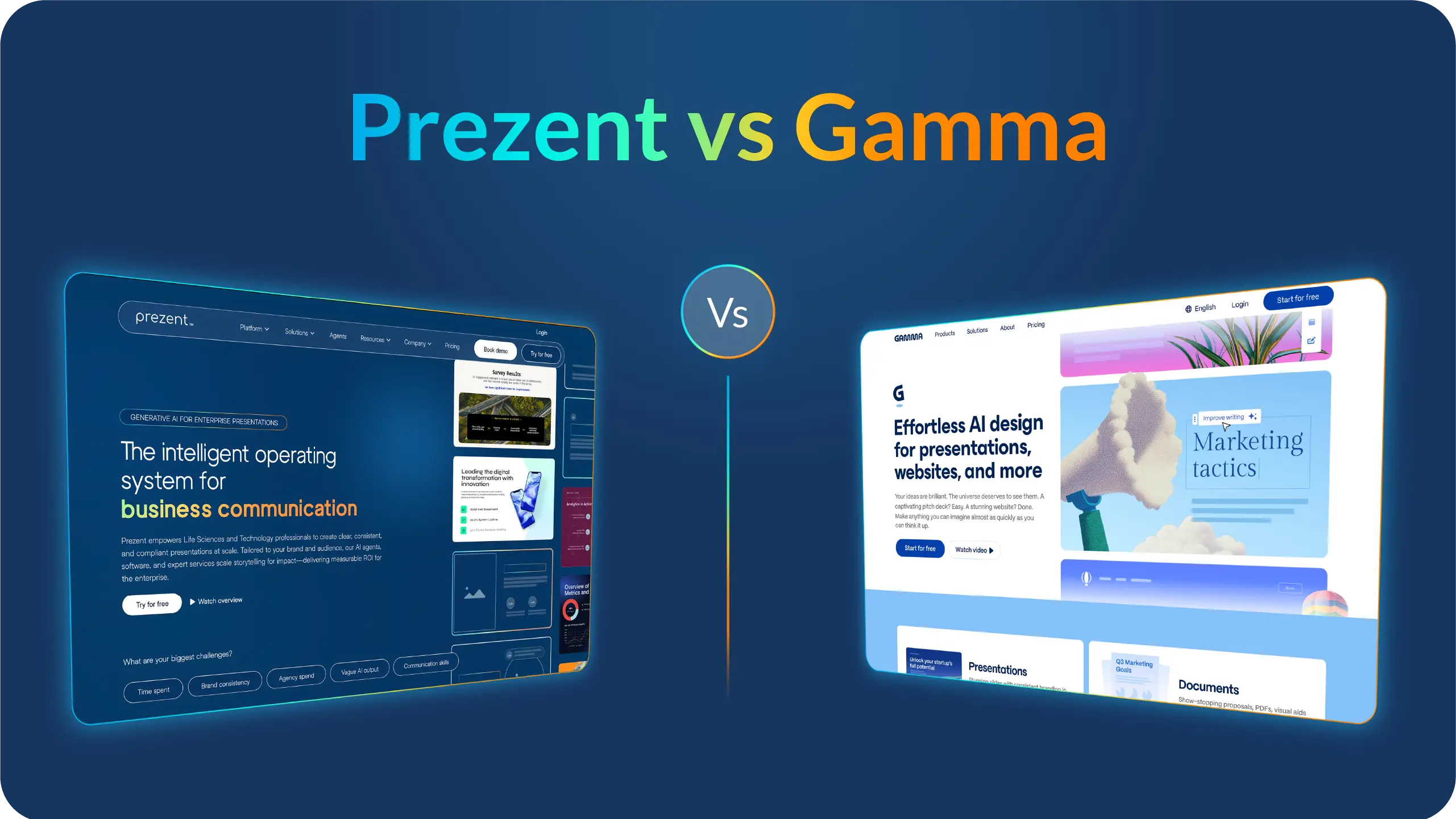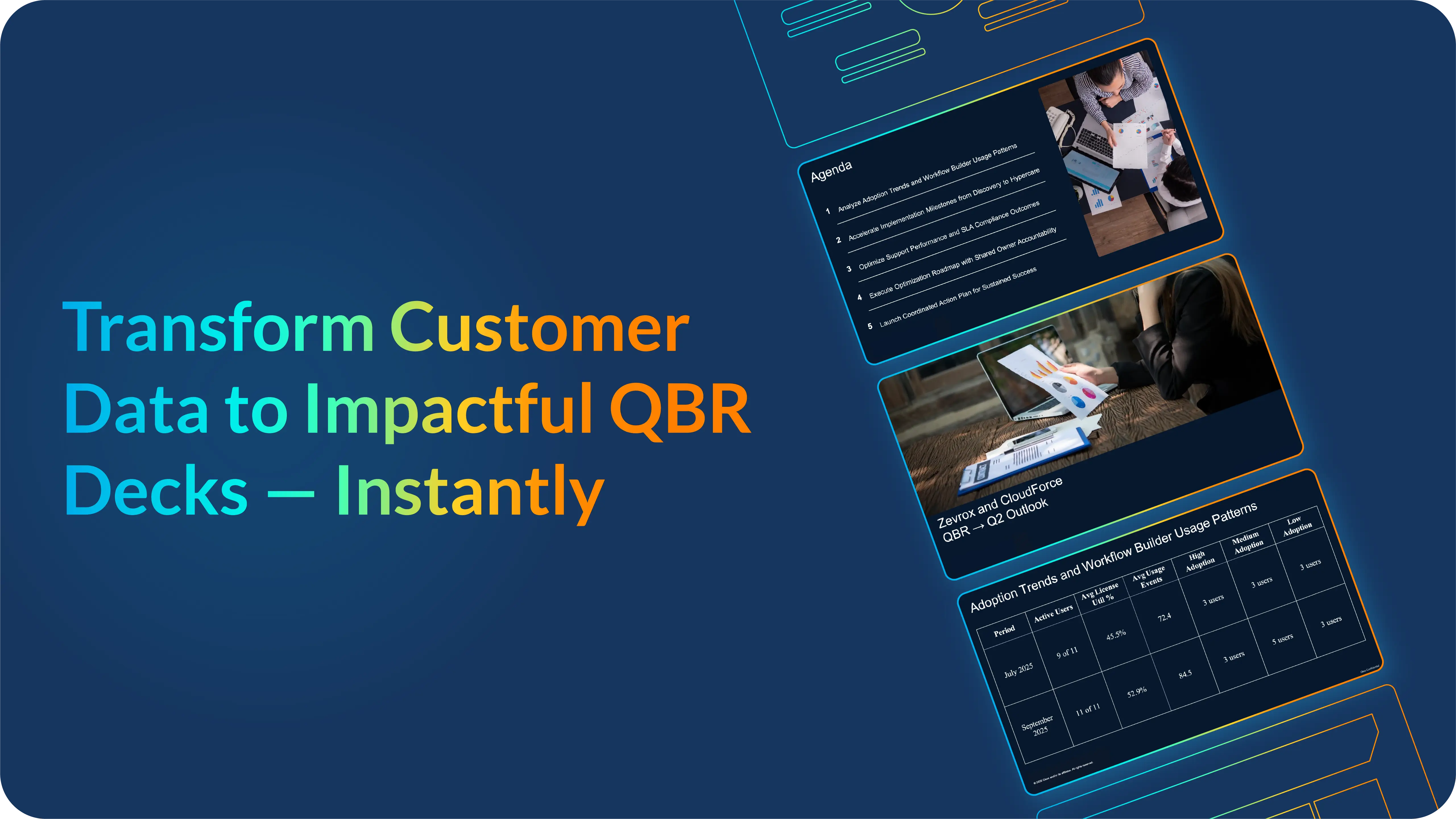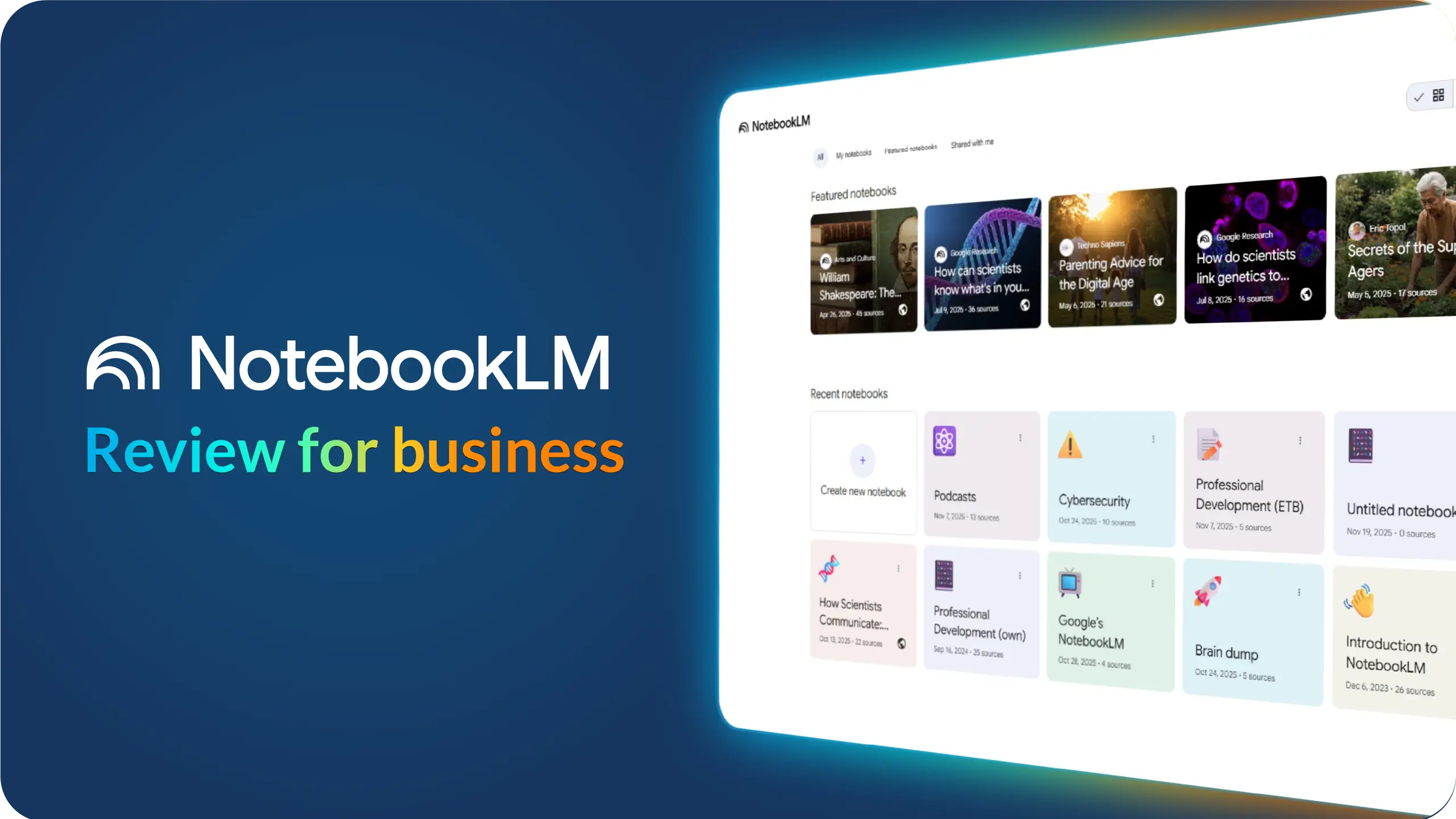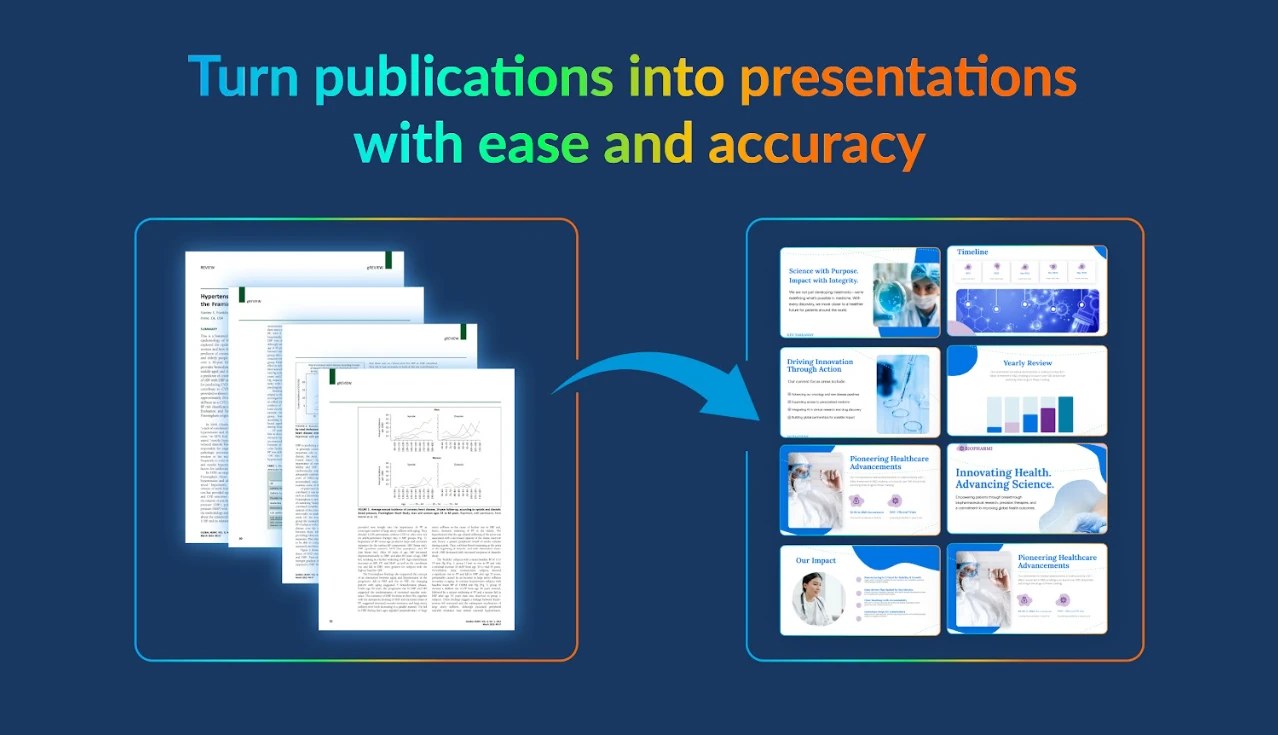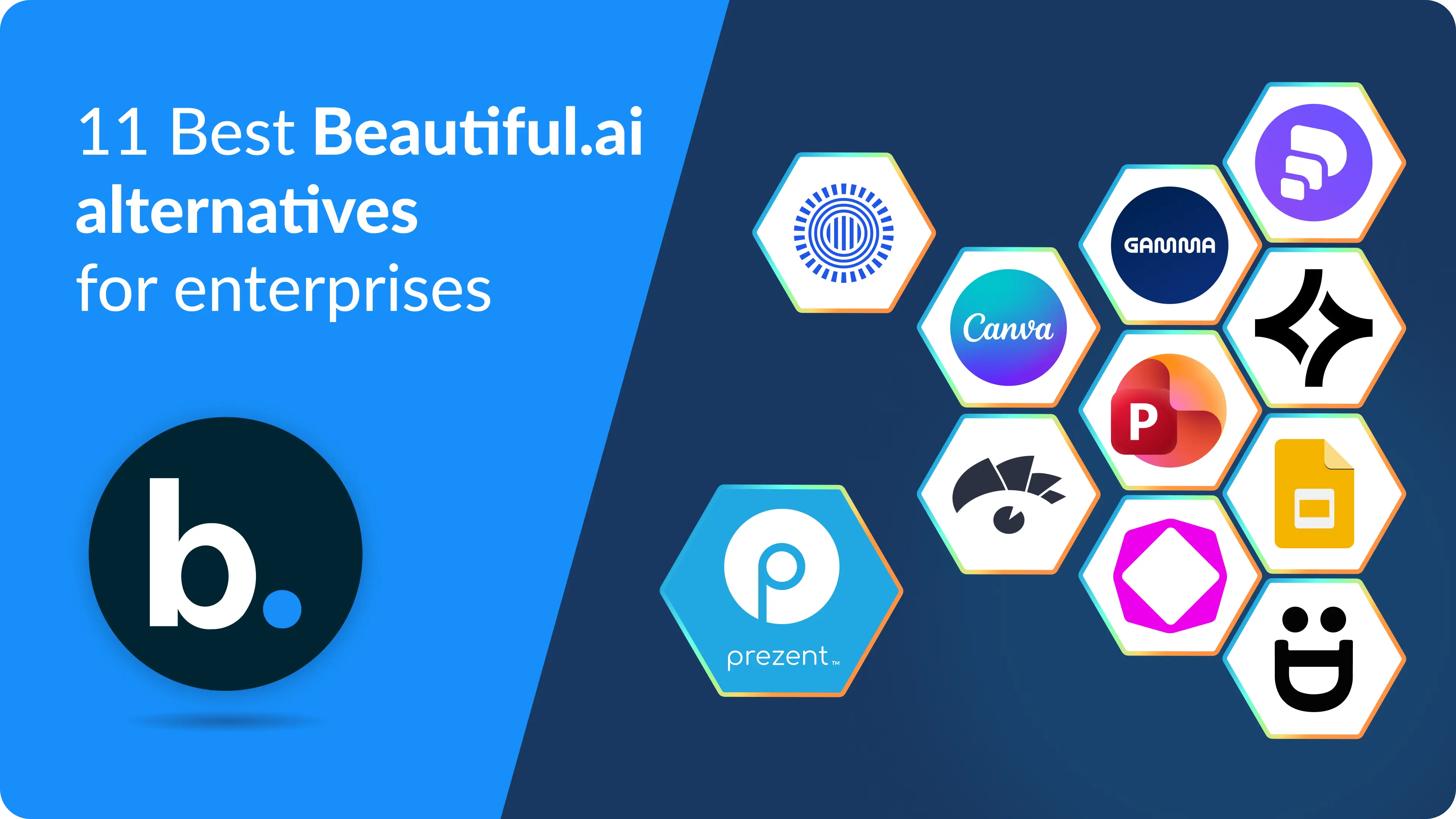Business plan presentation: A complete guide for executives

Hey there, fellow business enthusiast! 🚀
Have you ever wondered what sets successful entrepreneurs apart from the rest?
It's not just a great business idea; it's the ability to present that idea effectively through a stellar business plan presentation. In today's digital age, where first impressions matter more than ever, mastering the art of business plan presentations—and choosing the best AI presentation makers—is crucial.
In this comprehensive guide, we'll delve into the intricacies of crafting a winning business plan presentation that will leave potential investors, partners, and stakeholders eager to jump on board.
What is a business plan?
Before we dive into the nitty-gritty of presentations, let's start with the basics. A business plan is the blueprint for your entrepreneurial journey. It's a detailed document that outlines your business idea, strategy, and financial projections. It's like the GPS for your business, guiding you from start to success.
Purpose of a business plan: Why do we need one?
Now, you might be thinking, "Do I really need a business plan?"
Absolutely! A well-crafted business plan serves multiple purposes. It not only clarifies your business goals but also acts as a roadmap for your team. Moreover, it's a powerful tool to attract investors, secure loans, and demonstrate your expertise in your industry.
Types of business plans
When it comes to business planning, one size doesn't fit all. Depending on your specific goals and needs, there are various types of business plans to choose from. Let's explore some of the most common ones:
1. Startup business plan
Starting a new business venture? A startup business plan is your go-to document. It's like the blueprint for your entrepreneurial dream. This plan outlines essential elements such as your products or services, target market, competition analysis, and financial projections. Its primary purpose? To attract investors and secure the necessary funding to kickstart your business.
2. Strategic business plan
Looking at the bigger picture? A strategic business plan is your long-term roadmap. It not only sets your business goals and objectives but also outlines the strategies to achieve them. Think of it as your guiding star, ensuring that your business stays on track and steadily moves towards its goals.
3. Feasibility business plan
Before taking the plunge, it's wise to assess the waters. A feasibility business plan helps you evaluate the viability of your business idea. It dives into market analysis, competition assessment, and financial projections. This plan is often used to secure loans or grants, especially from banks or government agencies.
4. Operations business plan
Want to optimize your day-to-day operations? An operations business plan is your tool for streamlining processes. It covers everything from your products or services to supply chain, manufacturing, distribution, and customer service procedures. This type of plan helps enhance efficiency and productivity within your business.
5. Growth business plan
Ready to take your business to new heights? A growth business plan charts the course for expansion. It involves a thorough market analysis, competition assessment, and financial projections. This plan is instrumental in attracting investors or securing financing for ambitious growth projects.
6. Specialized business plans
Beyond the broad categories, there are specialized business plans tailored to unique needs. These include:
- Marketing business plans: Focused on marketing strategies and tactics.
- Financial business plans: Emphasizing financial projections and budgeting.
- Product launch business plans: Geared towards launching new products or services.
Here is a guide on new market entry strategy presentation.
Types of business plans based on size
Business plans can also be categorized based on their size and complexity. Here are the main types:
1. Traditional business plan
Think of a traditional business plan as the comprehensive encyclopedia of your business. It delves into every aspect, from products and target markets to competition and financial forecasts. Typically, it's used to woo investors or secure funding from banks.
2. Lean startup business plan
For startups seeking a more streamlined approach, the lean startup business plan is the way to go. It's a shorter, more focused version of the traditional plan, highlighting key elements like the problem you're solving, your solution, and your business model. Ideal for early-stage businesses looking to attract investors.
3. One-page business plan
Short on time but big on ideas? The one-page business plan is a concise summary of your business. It covers essential information like products or services, target markets, competition, financial projections, and your team, all on a single page. It's perfect for quickly pitching your business concept to potential investors or partners.
Remember, the type of business plan you choose depends on your specific business goals, size, and the stage of your entrepreneurial journey. Whether you're just starting out or aiming for growth, there's a business plan tailored to your needs.
Why presentation is important for a business plan
Now, let's talk about the secret sauce that makes your business plan stand out – presentation.
Think of it this way: You've got a fantastic business idea, but if you can't convey it effectively, it's like having a treasure map but no one to read it. This is where a well-crafted business plan presentation comes into play.
But don't just take our word for it. Numerous studies and statistics underline the crucial role of business plan presentations in the success of entrepreneurs and businesses:
Higher chance of success
Companies armed with well-structured business plans are more likely to succeed. According to a study by Harvard Business Review, business owners who create a formal business plan have a 16% higher chance of succeeding than those who don't. It's like having a roadmap that not only guides you but also significantly increases your odds of reaching your destination.
Securing funding
If you're in the pursuit of investors or loans, a well-crafted business plan presentation is your golden ticket. It's the bridge that connects your vision, strategy, and financial projections to potential investors. This critical step can't be underestimated, as 72% of investors consider a business plan presentation an important factor in their decision to invest in a company, according to CB Insights.
Attracting and retaining top talent
Your team is the backbone of your business, and attracting top talent is a vital aspect of growth. A business plan presentation plays a pivotal role here. It offers prospective employees insights into your company's goals and values, helping them understand the bigger picture. In fact, 85% of employers state that they would be more inclined to hire a candidate who demonstrates a clear understanding of the company's business plan, as reported by Glassdoor.
The power of well-designed presentations
It's not just about having a presentation; it's about making it count. Well-organized, informative, and engaging business plan presentations have a higher chance of success. A study by the University of California, Berkeley, found that such presentations, when thoughtfully designed and expertly delivered, are more likely to persuade investors and attract top talent.
In essence, a business plan presentation is your voice, your vision, and your opportunity to shine. It's not merely a formality; it's the vessel through which you convey your passion and dedication to your business. So, craft it thoughtfully, present it passionately, and watch how it can transform your business journey.
How to structure an effective business plan presentation
Creating an impactful presentation requires more than just slapping together a few slides. You'll need to structure it thoughtfully. Here's a winning formula:
- Title slide: The first slide should be eye-catching and informative. It's like the cover of a book – make it compelling.
- Executive summary: In a nutshell, summarize your business plan. Keep it concise and captivating, like the teaser of a movie.
- Business Idea: Dive into the heart of your business. Explain your idea in a way that sparks curiosity.
- Market analysis: Who's your target market? What is the size of your market? Show investors that you've conducted a thorough market analysis in your business plan.
- Business model: Explain how your business operates. What sets your business apart? Highlight your competitive advantage.
- Marketing and sales plan: How will you enter the market? What strategies will you use to promote your products or services?
- Financial projections: Lay out your financial plan. Investors want to see the numbers – revenue, expenses, and profit.
- Management team: Introduce your team. Highlight their expertise and why they're crucial to your business.
- SWOT analysis: Assess your business's strengths, weaknesses, opportunities, and threats.
- Conclusion: Summarize the key points and leave your audience with a sense of urgency to join your journey.
Do's and don'ts on a business plan presentation
Now that you know the structure, let's talk about some do's and don'ts to ensure your presentation hits the mark.
Do:
- Use visuals: Charts and graphs speak louder than words.
- Be concise: Avoid using too much text; let your slides complement your speech.
- Rehearse: Practice makes perfect. Be well-prepared for questions.
- Engage your audience: Make your presentation interactive. Ask questions and involve your audience.
Don't:
- Overload with information: Stick to the essentials.
- Read slides word-for-word: Your presentation should augment your words, not replace them.
- Waste time: Keep your presentation within the allocated time frame.
- Lack confidence: Believe in your business and your presentation.
FAQ's
1. Why is it important to make a business plan presentation?
A business plan presentation is your opportunity to showcase your business in its best light. It's not just about information; it's about capturing your audience's attention and conveying your ideas effectively. Think of it as a powerful tool to explain your business, highlight key aspects, and ultimately secure the support and funding you need. Whether you're presenting to investors or stakeholders, a well-crafted presentation can make a significant difference in conveying your unique value proposition.
2. How many slides should my business plan presentation have?
The number of slides in a business plan presentation can vary, but a common guideline is to aim for 10-12 slides. This range allows you to explain your business comprehensively without overwhelming your audience with too many details. It's essential to create an outline and plan your presentation strategically to fit your entire story within these slides. Remember, it's not about how many slides you have, but how effectively you use them to highlight the key points of your business plan.
3. What are some common mistakes to avoid when creating a business plan presentation?
One of the most common mistakes to avoid in a business plan presentation is overloading it with text and data. Instead, focus on using bullet points and visuals to convey your message clearly and concisely. Additionally, don't forget to include a value proposition that sets your business apart. It's crucial to answer the following questions: What services or products do you offer? Who is your target audience? How do you plan to reach them? What channels will you use? By addressing these aspects and avoiding information overload, you'll be on the path to creating a winning presentation.
4. Do I need a specific presentation template for a business plan presentation?
While it's not mandatory, using a business plan presentation template can be highly beneficial. Templates provide a structured format that makes it easier to organize your content effectively. They often include slide designs tailored for different aspects of your business plan, such as market analysis, financial projections, and product development. By using a template, you can save time, ensure a professional look, and focus on the details about your business rather than the design of your slides.
5. How should I time my business plan presentation?
Timing your business plan presentation is crucial to keeping your audience engaged and respecting their time. Generally, a business plan presentation should last around 20-30 minutes to allow for questions and discussions afterward. However, it's essential to rehearse and ensure that you can present your content effectively within this timeframe. Make sure to plan and highlight the most critical points, keeping your audience's attention throughout the presentation. Remember, a well-paced and engaging presentation can leave a lasting impression and increase your chances of success.
Summarizing key takeaways
In this comprehensive guide, we've unraveled the art of crafting a compelling business plan presentation. From understanding the types of business plans to mastering the do's and don'ts, you're now ready to create presentations that leave a lasting impression.
Remember, a successful business plan presentation is not just about the slides; it's about telling a captivating story that resonates with your audience. So, go ahead, use those templates, slides, and presentation software to make your business idea shine.
And always keep in mind: Your business plan presentation isn't just a pitch; it's the first chapter of your entrepreneurial journey. Make it count!
Create your business plan presentation with prezent
Now that you're equipped with the knowledge to create a winning business plan presentation, you might be wondering where to start.
The answer? Prezent, the ultimate AI presentation tool for enterprise for enterprise teams.
With Prezent's 35,000+ slides and 100% compliance, you can save 70% of the time in making presentations while ensuring your brand is 100% on point. Our real-time sharing and collaboration features make teamwork a breeze, and you can access guides, e-courses, and templates that will make your presentation shine.
So, why wait? Whether you're using PowerPoint, Google Slides, or any other platform, Prezent has the templates and tools you need to create a business plan presentation that wows your audience.
Ready to supercharge your business plan presentations? Try our Free Trial or book a Demo today with Prezent!
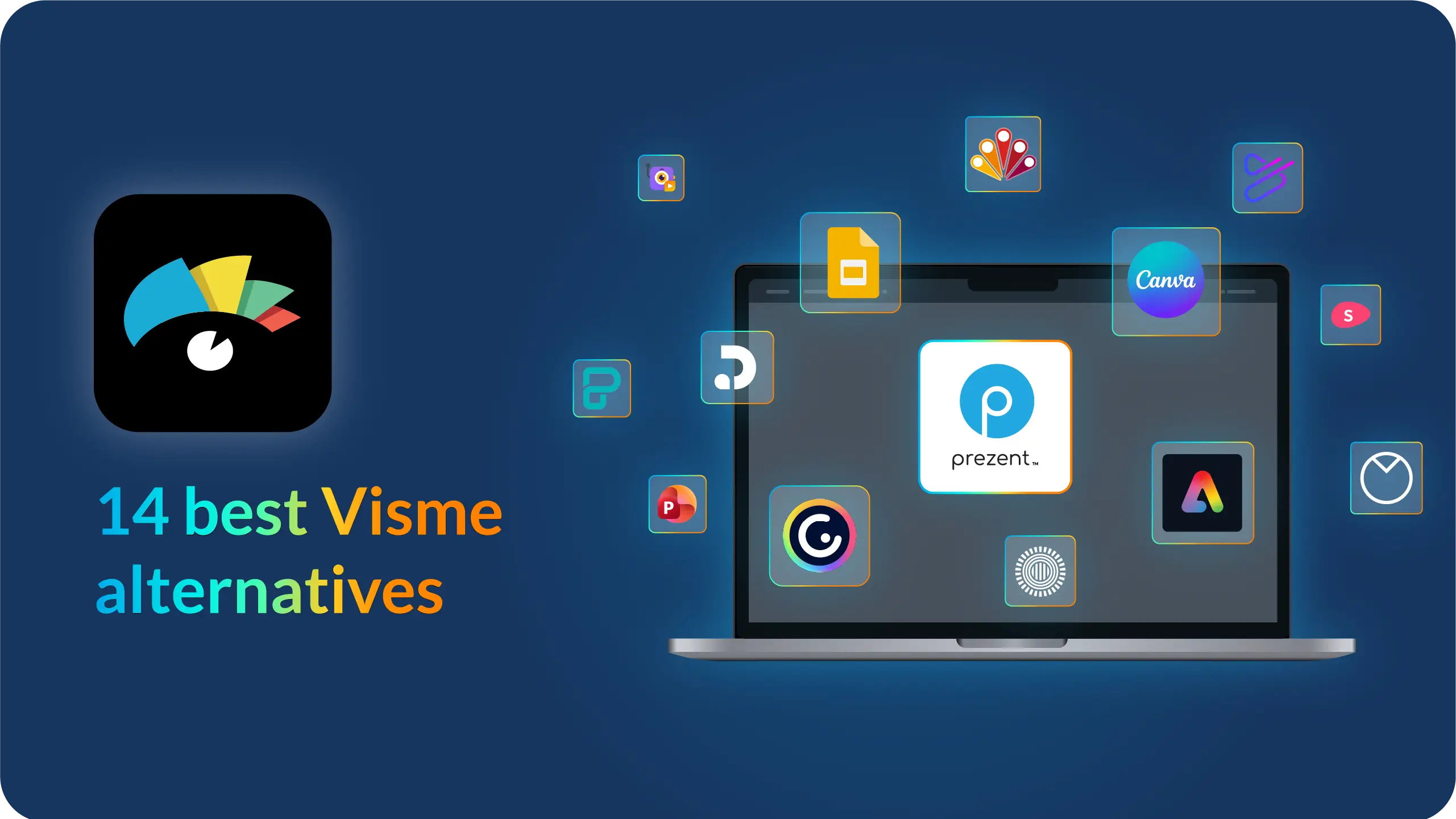
.png)
